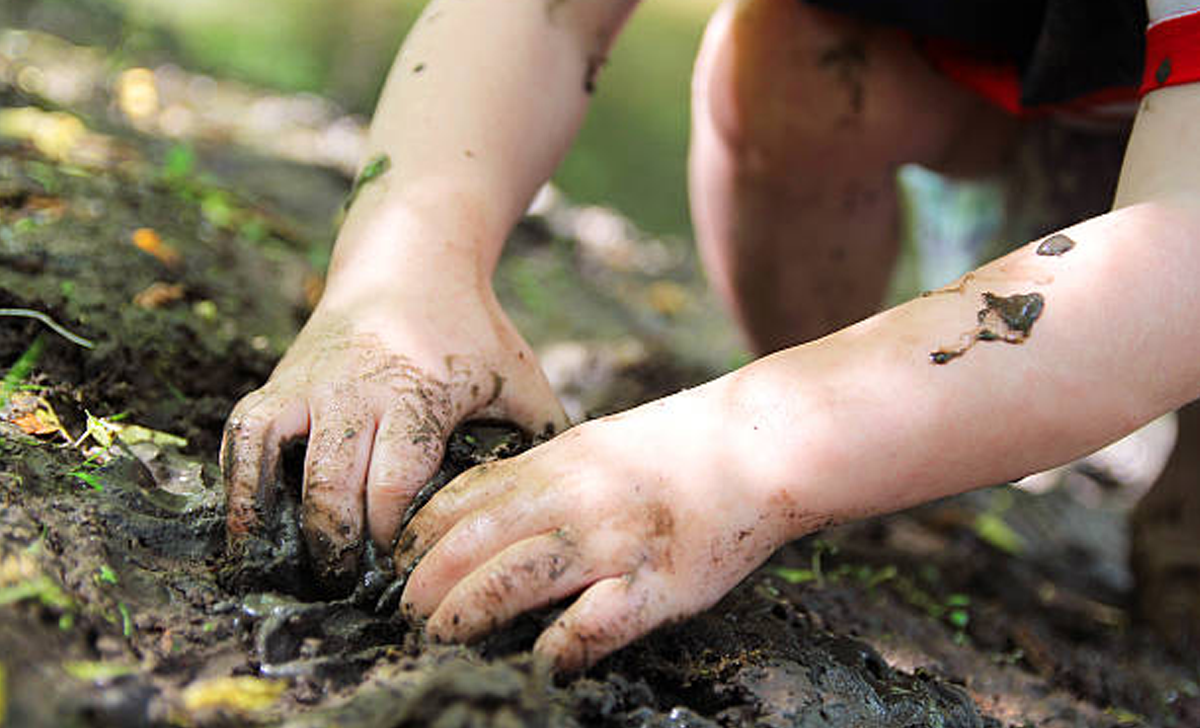
While watching some of our kiddos enthusiastically digging on the church playground, I thought of how dirty hands aren’t appreciated. It seems children are born ready to dig into a mess before them, to experience the earth by getting it under their fingernails and in between their toes, and to delight in life by generally getting it all over themselves. But it doesn’t take long before we learn that dirty hands and faces are unacceptable. Jumping into mud puddles will come with a reprimand and finger-painting is only for those who haven’t yet graduated to brushes. Moving from childhood to adulthood seems to involve cleaning up one’s act in more ways than one.
God inspired the writers of the New Testament to use metaphors of childhood in their letters to newly believing communities. Paul compares one’s knowledge of God to the process of learning: “When I was a child, I spoke like a child; I thought like a child, I reasoned like a child. When I became a man, I gave up childish ways. For now we see in a mirror dimly, but then face to face. Now I know in part; then I shall know fully, even as I have been fully known” (1 Corinthians 13.11-12). Peter similarly encourages new believers to grow in love and knowledge: “Like newborn infants, long for the pure spiritual milk, that by it you may grow up into salvation, if indeed you have tasted that the Lord is good” (1 Peter 2.2-3).
It is easy to read both passages and conclude that the ways of children are behaviors we are being told to outgrow. It is easy to allow our negative views of what is “childish” to inform the way we receive these exhortations involving what is “childlike.” But, I think, instead of speaking negatively of childhood, Paul is comparing our current understanding and vision of God to that of a child’s, which will encouragingly grow clearer. Similarly, Peter is not urging us to grow out of our infant hunger. On the contrary, he’s urging us to grow further into it. Indeed, there are some aspects of childhood that God would not have us abandon with age!
Could we be missing the treasures God offers by resisting the instinct of getting our hands dirty and insisting that the world only be seen in detached and tidy ways? Are things of the kingdom lost on us - things of God and of Christ - because we have so stagnated faith into something that only touches spirit or mind, and not hands, feet, and body? Might we be stunted because we see this kingdom as something only ethereal - a distant hope for a future life - instead of something dynamically here and among us, calling us to a fully engaged, hands-dirtying existence today?
Jesus told his disciples, “Truly, I say to you, unless you turn and become like children, you will never enter the kingdom of heaven” (Matthew 18.3). Neither Christ nor the kingdom He came to make known is a static entity (something that mattered long ago and might matter once again, but not here and now in this life as we know it). On the contrary, all of history, the stories of redemption and the Incarnation itself, reminds us that God is far more hands-on than this. The Lamb of God very physically took away the sins of the world. With a God who is willing to become flesh and dwell among us, would we be called to a faith that is anything less than hands-on as well? Even in his last days, Christ did not merely leave us with instructions to remember Him as a figure in history. He told us to remember Him and gave us a meal - a way to bodily take in the very kingdom and story He proclaimed again and again.
Christ has given us permission to jump completely into the great and wonderful kingdom over which God reigns. In this kingdom, we can be as children who delight in knowing life with dirty hands, who like Thomas need the invitation to touch, and like Paul, see the need to give mind, soul, and body to the One who gave us all of Himself. The kingdom of God belongs to such as these.







